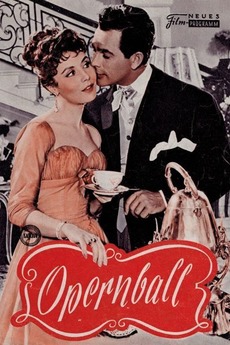| Opera Ball | |
|---|---|
 | |
| Directed by | Ernst Marischka |
| Written by | Viktor Léon (libretto) Heinrich von Waldberg (libretto) Ernst Marischka |
| Produced by | Karl Ehrlich |
| Starring | Johannes Heesters Hertha Feiler Josef Meinrad |
| Cinematography | Bruno Mondi |
| Edited by | Alfred Srp |
| Music by | Richard Heuberger |
Production company | Erma-Film |
| Distributed by | Sascha Film (Austria) Herzog-Filmverleih (W.Germany) |
Release date |
|
Running time | 95 minutes |
| Country | Austria |
| Language | German |
Opera Ball (German: Opernball) is a 1956 Austrian musical comedy film directed by Ernst Marischka and starring Johannes Heesters, Hertha Feiler and Josef Meinrad. Based on the 1898 operetta Der Opernball , it is part of the operetta film tradition. A previous film version had been made in 1939. [1]
Contents
The film's sets were designed by the art director Fritz Jüptner-Jonstorff. It was shot using Agfacolor.